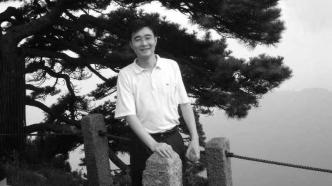
Wang Jun, an important force in the movement to protect ancient villages in China, the initiator of rural construction in the county, and the pioneer of the plan to save old houses, the former secretary of the Songyang County Party Committee and the leader of the Zhejiang Working Group in Sichuan, died in office not long ago at the age of 52.
Life passed away suddenly, and this person is far away. However, in the hearts of people who are familiar with Wang Jun and those who are not familiar with him, the cause he sticks to is still there. "He (during his tenure in Songyang) really protected the ancient villages and carried out various experiments in modern cultural protection while defending the common people's culture throughout the county. He is Wang Jun." This is the author's many interviews with Wang Jun impression.
Wang Jun's departure also makes people ask again: What should cultural protection workers do in ancient villages?
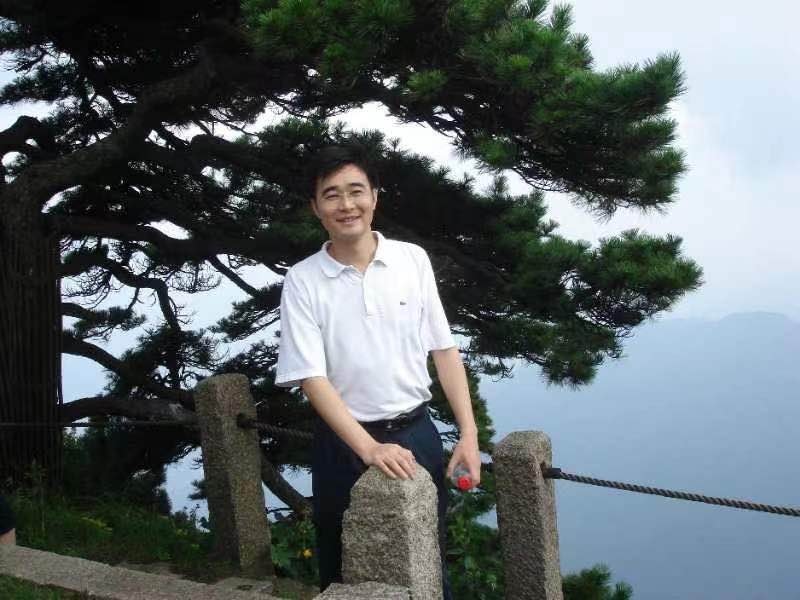
Wang Jun. Photo courtesy of the author
Twenty-one days after the death of Mr. Huang Yongsong, the founder of "Hansheng" magazine, an active rescuer of China's local cultural heritage, and one of the guardians of Chinese folk crafts and culture, an important force in China's movement to protect ancient villages and an initiator of rural construction in the county, Wang Jun, the pioneer of the plan to save old houses, former secretary of the Songyang County Party Committee and deputy director of the Zhejiang Provincial Department of Culture and Tourism, died of illness at the age of fifty-two. To be honest, I was completely confused. As the main writer of Hansheng's "Songyang Heirloom", I have interviewed Wang Jun many times, and I know deeply that with his death, China has lost what kind of talent and what kind of possibility it has lost in the future!
Want to cry!
There was once a saying: "In China, everyone's hometown is falling!" Under the wave of vulgar commercialization and the background of the times, the torrent caused by all this has destroyed our original soil, Lijiang, Dali, Phoenix, and all kinds of inferior The commercial tourism model has destroyed each and every living ancient city, town, and village. What should cultural conservation workers do?
I use Mr. Huang Yongsong’s favorite poem by Rabindranath Tagore to describe the mission of Chinese cultural protection workers:
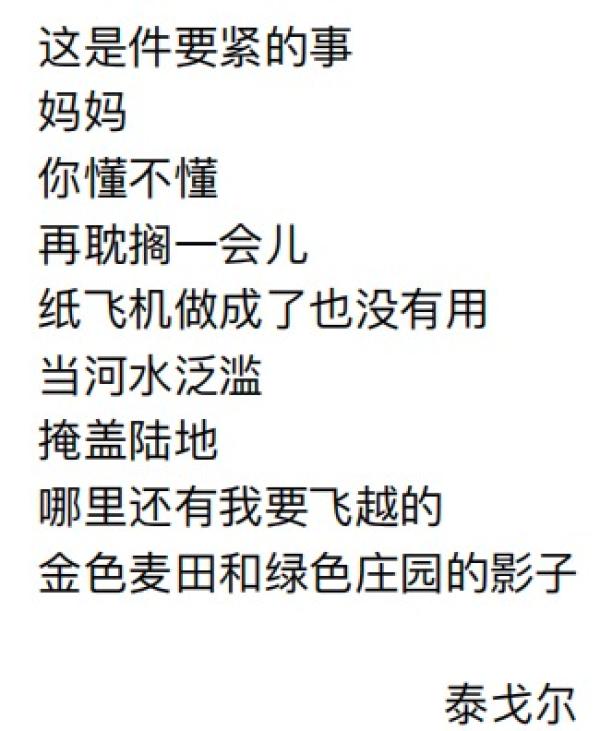
In the flood, a figure stood up, a maverick official! He sincerely protects ancient villages and conducts various experiments in modern cultural protection while defending common people's culture throughout the county. He is Wang Jun.
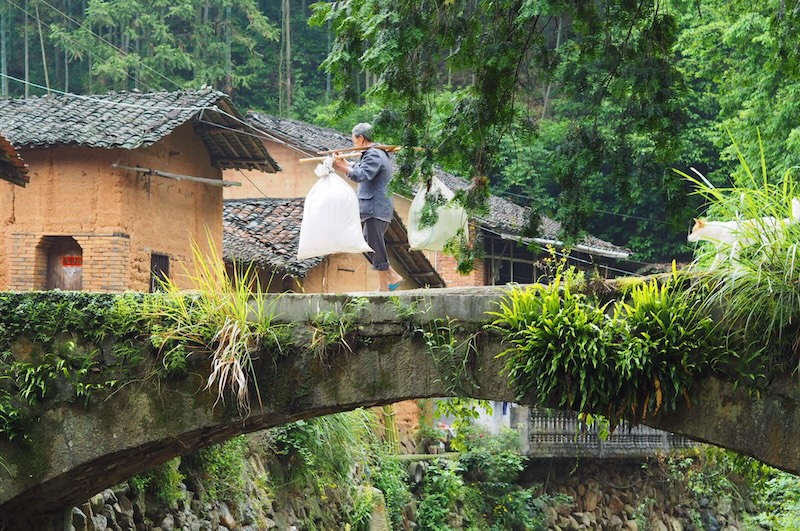
The ancient stone bridge in Songzhuang Village, Songyang, Zhejiang. small grid
A 180 degree turn
No one is a god, no one is a hero from the beginning. Wang Jun was also an ordinary official at the beginning, but his heartbeats were with the common people.
Renovation of old villages is a policy worthy of reflection. Because only old houses can be demolished to get the quota for building new ones, this one-size-fits-all policy has caused serious damage to ancient villages across the country, and Songyang was no exception. At that time, most of the ancient villages on the plains had been demolished, and the knife And extends to the mountains.
A group of ordinary people from Songyang stood up. They were photography enthusiasts from Songyang. The leader was Ye Gaoxing, the director of the Songyang Civil Affairs Bureau Office. The other six or seven people came from all walks of life, including backbones of the Public Security Bureau and ordinary people. . Their belief is that we do not have the power to fight against the trend of old village renovation, but we can keep records and take beautiful photos of the ancient villages in Songyang Mountain before they are demolished!
The exhibition was held in the county seat. On that day, the people of Songyang were shocked. It was the first time that they knew that Songyang had so many beautiful ancient villages! The excitement was contagious, and the exhibition was packed with people.
Wang Jun, the newly appointed secretary of the county party committee, also came to see the ancient village photography exhibition after hearing the news. He immediately made a decision: stop the demolition of the ancient village and the reconstruction of the ancient village, and protect the ancient village.
This 180-degree change will make Songyang the county with the second largest number of national ancient villages in the country. There are 72 villages listed as Chinese ancient villages, and most of these 72 ancient villages were discovered by photography enthusiasts. .
Why could Wang Jun make such a bold move? He studied mathematics in college and was a teacher. It was the democratic reform of public recommendation and public suffrage that allowed him to become the mayor. Therefore, he has always believed that his power comes from the people, and he should think and do things for the people. When he became county magistrate, the county party committee secretary supported him very much. Four years later, he was appointed as county party secretary, and the real changes in Songyang began.
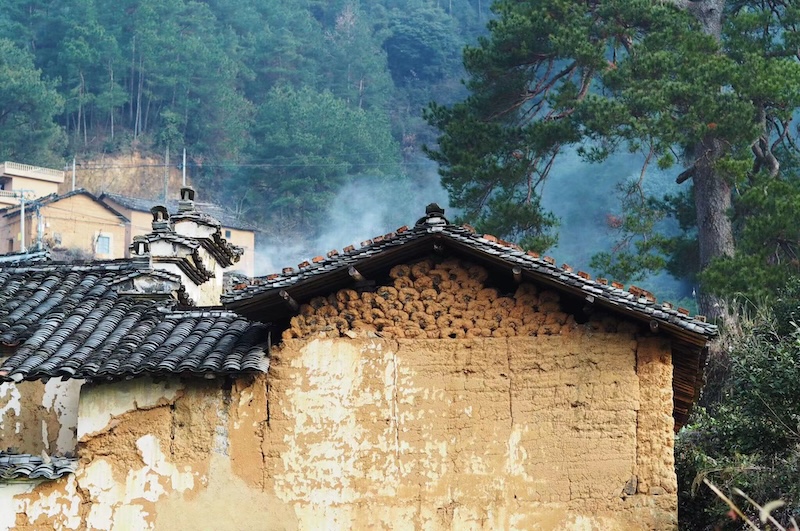
Smoke from cooking stoves in the ancient village of Songyang, Zhejiang. small grid
The second bold move
Denying the transformation of old villages, protecting ancient villages, and requiring the protection of historical traces of all eras, including cattle pens, mills, old toilets, and old mountain roads... This is already extremely bold.
Immediately afterwards, Wang Jun embarked on something that no Communist Party member could even imagine: overhauling ancestral halls throughout the county.
What? Isn’t it superstitious to worship ancestors? After 1949, you have been suppressed and regarded as the dregs of tradition. Wang Jun, what do you want to do?
Seventy-two village ancestral halls will be repaired first, and 200 ancestral halls will be repaired eventually. The Songyang County government will pay half of the money, and the village will pay half. Building ancestral halls is not for tourism. There is no need to build so many ancestral halls for tourism.
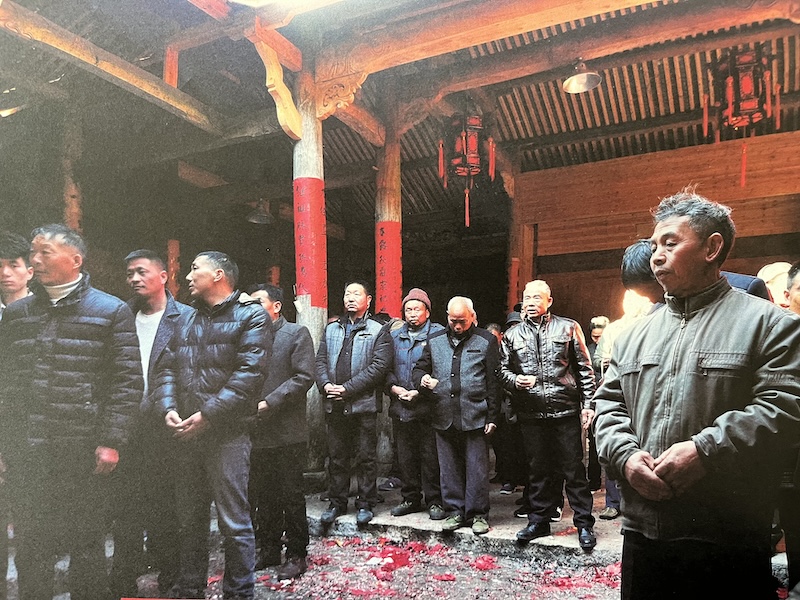
Worshiping ancestors at the ancestral hall. Photo by Liu Zhenhao. Photo courtesy of the author
After the ancestral hall is built, it is all handed over to the village elders, who are allowed to decide on sacrifices, festivals and public activities in the village. The government encourages it and hopes that each village will have its own special traditional cultural activities.
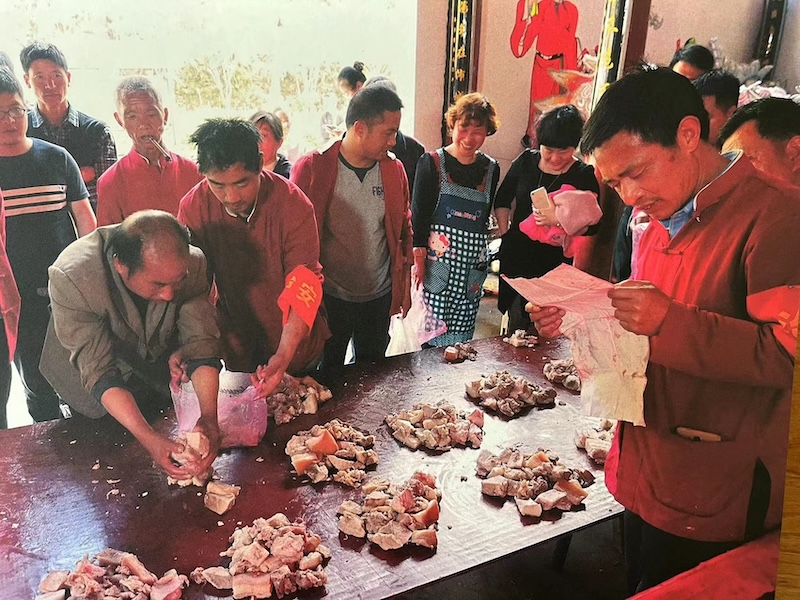
Fenfu Photo by Liu Zhenhao. Photo courtesy of the author
This opens up the situation, and the village has real space for villagers and elders to move. The elders' decision-making system is continued, and the tradition can be restored completely faithful to history. Villagers can make their own happiness, which is what they want to do.
In addition to the general resumption of ancestor worship, 67 villages have resumed their own unique worship and festival activities. We basically interviewed these villages, which were indeed completely led by the villagers, and the scenes were real and dynamic.
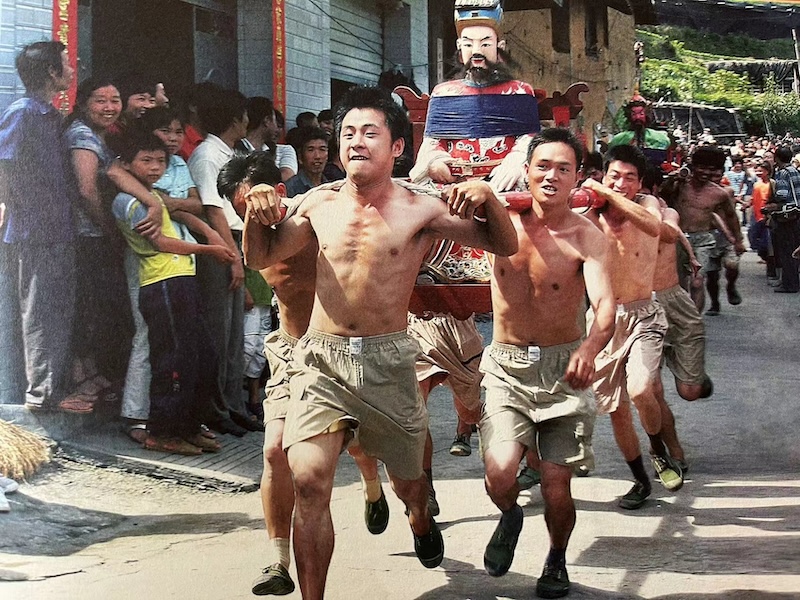
Wandering God. Photo courtesy of the author
Wang Jun knows the hearts of the people and the independence of the people. Spontaneity is the most powerful. China's reforms have always been incremental reforms, with economic decentralization and the rise of self-employed private enterprises. The same goes for cultural reform, where the people take the lead and the government helps.
Ancestors in the county are revered, villages offer sacrifices, and festivals are fully revived. The government does not interfere in any way, but only encourages. This is how the revival of Songyang's traditional culture began.
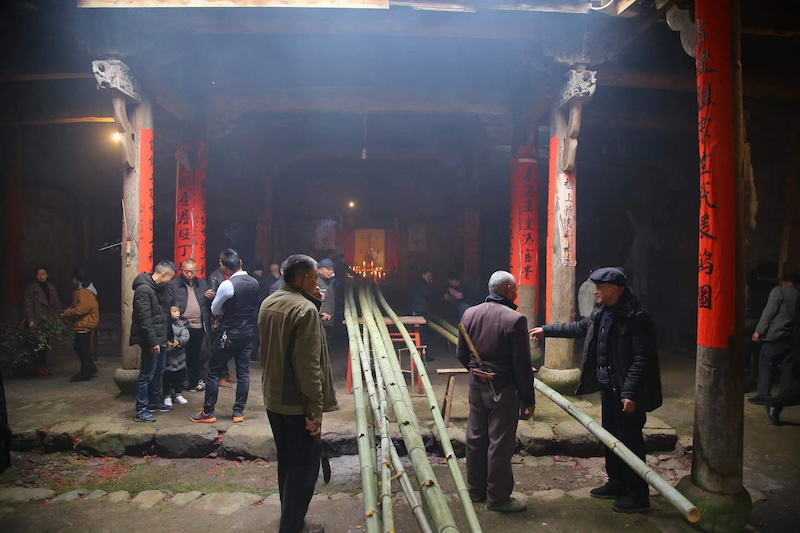
Villagers are making a bench. Photo by Gu Minchao. Photo courtesy of the author
Acupuncture therapy is effective
Acupuncture therapy in Songyang Xiangjian is now well-known, but Wang Jun was not the first to invent it. He was a learner, and he eventually used practice to turn the concept into a good way to benefit the people.
The money for rural development is limited. If it is sprinkled all over the countryside like pepper, it may cause a few sneezes in the countryside, but nothing will be accomplished.
what to do?

On Songyang Old Street, many old handicraft shops have been preserved. Komatsu map
Acupuncture therapy was proposed by Hong Kong architect and designer Wang Weiren, who was a disciple of Taiwanese planning master Xia Zhujiu. His acupuncture therapy mainly focuses on village transformation, focusing limited funds on key public and private buildings in the village to activate communities and promote public life. Just like acupuncture, it first opens up the veins and causes changes in the energy of the village and its own construction power. Wang Weiren conducted successful experiments in some villages in Songyang.
Wang Jun keenly grasped the key points and promoted this method throughout the county, making this method widely known.
Wang Jun introduced a group of architects to carry out key ancient building restoration and acupoint-style public buildings in Songyang. Such as the Damushan Tea Garden Tea House, the Village Brown Sugar Workshop, the Shicang Contract Museum, the construction of Wangcun Wetland Park, the new restoration of the ancient covered bridge, the construction of Pingtian Village B&B, Chenjiapu Common People’s Bookstore, the core buildings of Songyang Ancient Street, the Martial Arts Temple and the Confucian Temple As well as the restoration of guild buildings, the Qingma Ancient Road, the Female Poet Memorial Hall... "Living protection, organic development" culture is not a show, it is the real beauty of the living people.
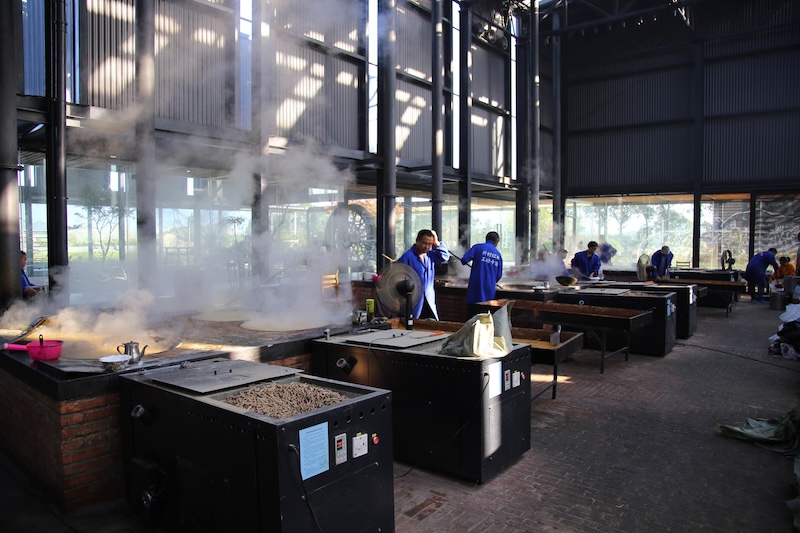
Interior view of the village brown sugar workshop, photographed by Gu Minchao. Photo courtesy of the author
Among many architects, Xu Tiantian is a prominent one. She has undertaken so many projects that some people joked that "Songyang is sweet." But a closer look shows that Xu Tiantian also went through a trial and error process in Songyang Architecture. The early problem of the Shicang Contract Museum being out of touch with the function was corrected in the later construction of the covered bridge. Generally speaking, Xu Tiantian’s Songyang buildings play a role in acupuncture therapy, and there are many Internet celebrity buildings, which have increased Songyang’s influence.
Wang Jun was right. His cooperation with the architects was frank and efficient.

Ishikura Contract Museum
Plan to save old houses takes the lead in pilot project
There has always been a problem: it is difficult for ordinary people to repair their old houses. Because ordinary people's houses are low-level cultural relics, the government cannot provide funding according to regulations, and can only watch them collapse.
Things took a turn for the better. In 2016, the China Cultural Relics Conservation Foundation organized and chaired by Li Xiaojie, the former deputy minister of the Ministry of Culture (former director of China’s Cultural Relics Administration), had a “Save Old Houses” plan, and Wang Jun tried to be the only pilot in Songyang. The people pay half of the money, and the government pays half of the money to repair their own houses, in order to mobilize the enthusiasm of the people. Restoration plans are proposed by ordinary people and reviewed by expert consultants. As long as the ancient architectural pattern is not destroyed, ordinary people can install modern toilets and sanitary ware. What's even better is that ordinary people can contribute to repairing their own homes and still get paid for it. You hire yourself, and the government pays your wages. When building a house for yourself, it is impossible to have a shoddy project. After careful work by Wang Jun's team, the Provincial Ancient Building Institute issued standardized restoration regulations (guidelines). 177 ancient buildings facing collapse have been repaired (total area exceeds 96,000 square meters). Wang Jun has done another great thing for the people and culture!
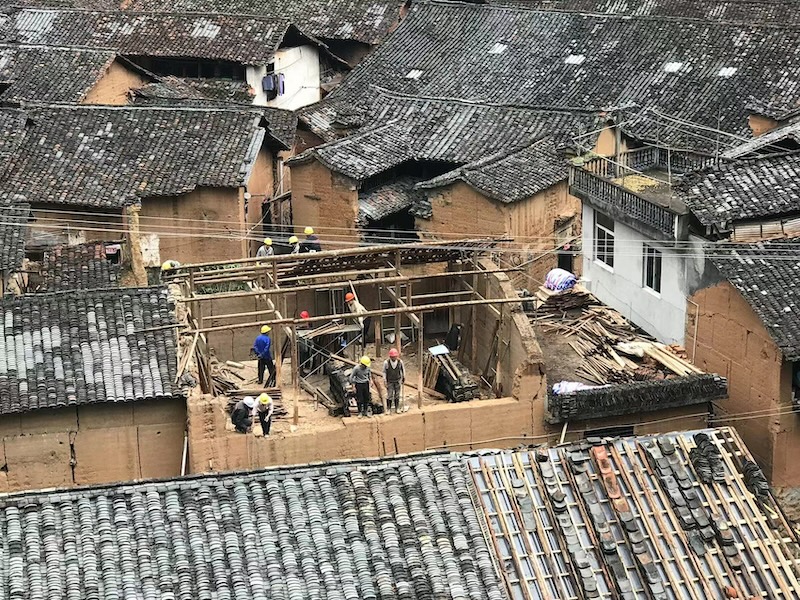
Renovation of old house in Songyang. small grid
Be in harmony with the common people
Wang Jun was the county party secretary in Songyang. In the first year of taking office, he visited 401 villages in Songyang. What kind of people-friendly style does he have? We experienced such a scenario. At that time, our Hansheng team was covering organic rice cultivation in Daitou Village, Gaoshan, Songyang. The village secretary answered the phone and said after finishing the call, "Damn it, I didn't tell you earlier!" It turned out that Wang Jun had come to the mountain.
The first thing Wang Jun said when he came was "Don't kill chickens, just get some vegetables." Then he picked up a bench and had a chat with the village secretary, down to the details of how to sell organic food and what difficulties the village faced. How to do a cooperative. The secretary was not polite and complained directly, asking Wang Jun for help.
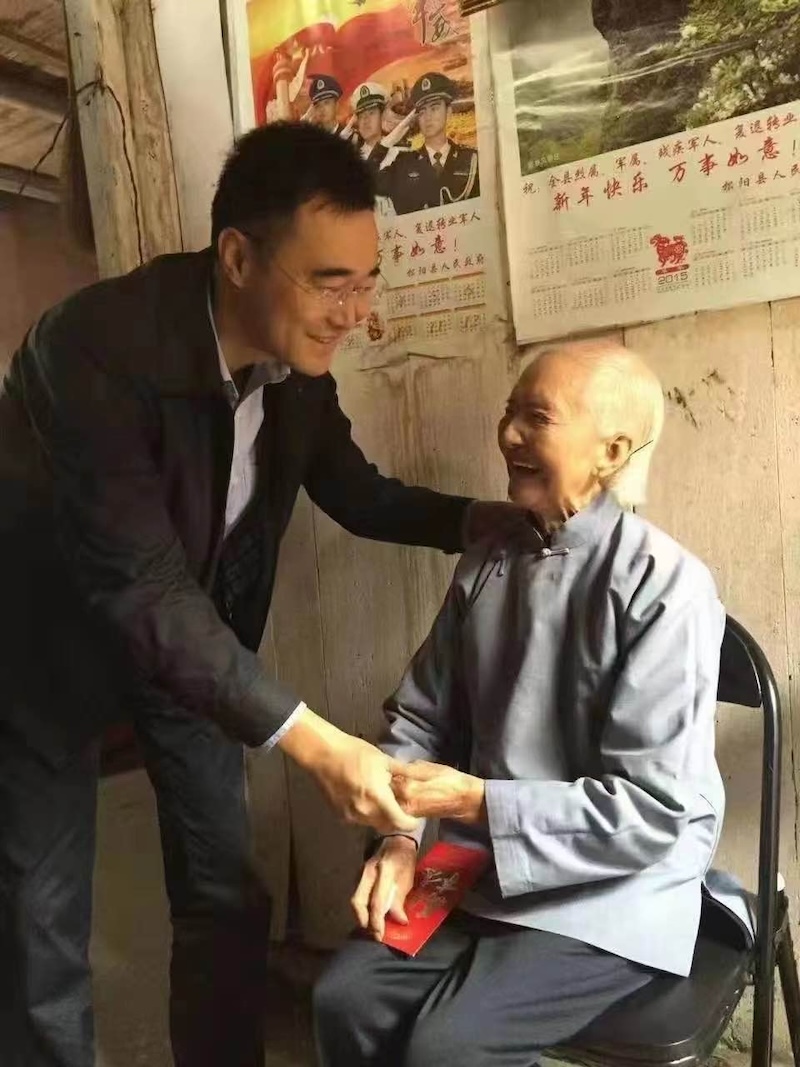
Wang Jun and the old man Songyang. Photo courtesy of the author
Wang Jun was very strict with his subordinates, but he never put on airs with his fellow villagers. When the grandparents saw him, they would hold hands and talk, as if they were treating their children and grandchildren.
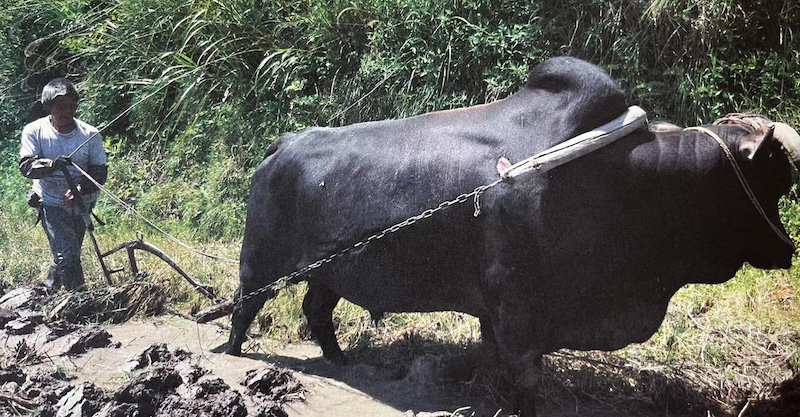
Alpine organic terraces and traditional cattle farming in Daitou Village, Songyang, photographed by Liu Zhenhao. Photo courtesy of the author
The common people were not afraid of him, and they could even make fun of him. Once there were wild boars in Daitou Village, and they had to knock bamboo tubes and shout the horns every day to drive away the wild boars. We suggested that Secretary Wang Jun record his speech and show it to the wild boars because the county magistrate had a strong aura. Wang Jun laughed after hearing this and was not angry because of our nonsense.
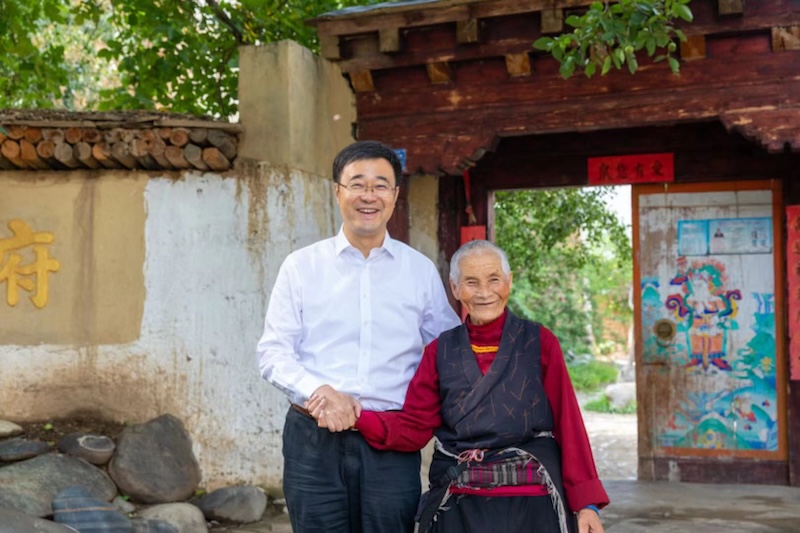
Wang Jun and the old man Songyang. Photo courtesy of the author
Desperate Saburo
He treats his subordinates like a nun. I once witnessed him getting furious on the phone because the cultural project was about to be implemented and the engineering was not being done well. Wang Jun does many things himself. Some people say that he is the secretary of the county party committee who manages toilets. It is true! Next to the Wetland Park in Wangcun, there is a public toilet that he designed himself. It uses old wood and old boards and has quite an aesthetic taste.
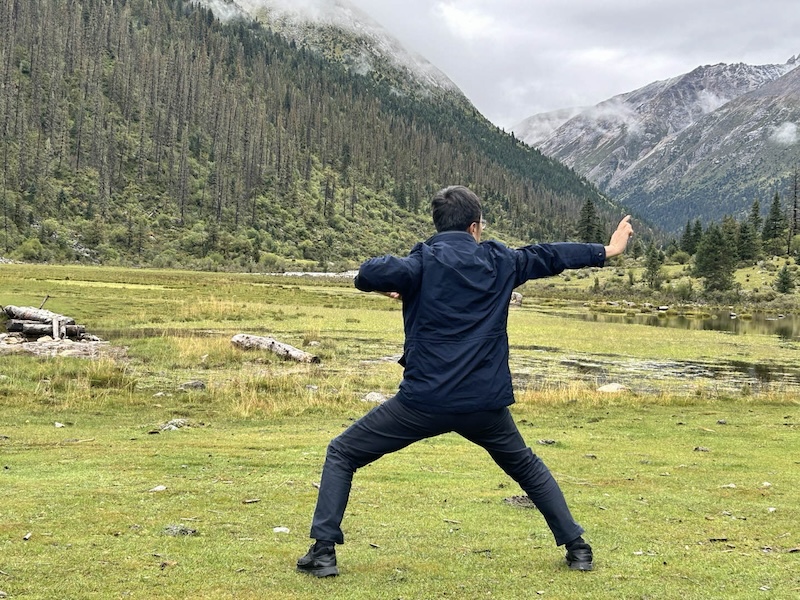
Wang Jun's back. Photo courtesy of the author
He often races against time and even has meetings in the middle of the night. Many of his subordinates are also desperate. To what extent? Even I can't stand it anymore. Once in Daitou Village, I was drinking and chatting about organic farming with my Hansheng colleague Wang Guohui and the village chief secretary. Unknowingly, I was half drunk. Suddenly I received a call from Wang Jun asking us to rush to the county government for a meeting at eight o'clock in the evening. When we met, I was so drunk that I lectured the secretary: "Secretary Wang, you have to be kind to your subordinates. Do you know the plan to save the old house?" The person in charge, Wang Yongqiu, fainted at work, and Director Ye Yongkuan fainted on the plane! They were too tired and suffering! ..." Wang Jun looked at me, smiled, and then hurriedly asked Director Ye next to him if he had this. Why didn't you tell him? ! Only then did the subordinates dare to complain.
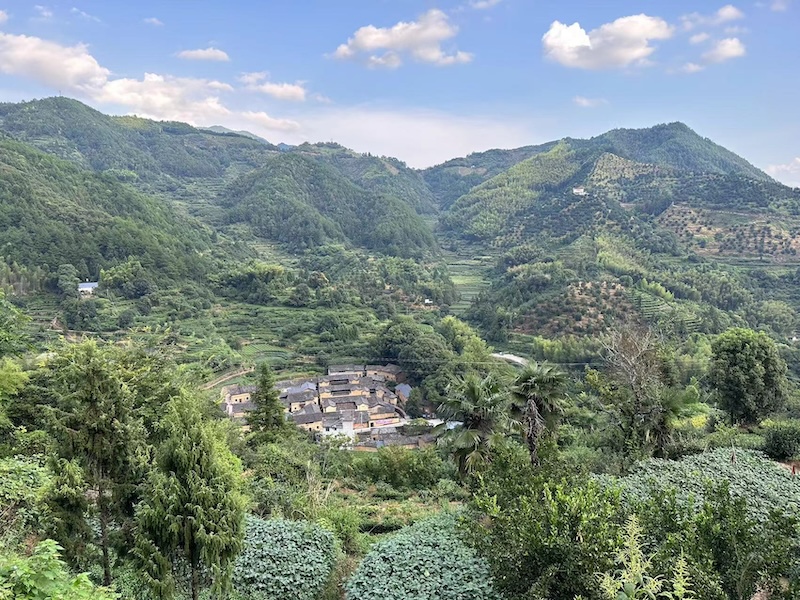
An ancient village surrounded by mountains. Komatsu map
Ancient villages are not alive for tourists
Wang Jun really loves the ancient village. He believes that not only the old buildings should be preserved, but also the cowsheds, ancient stone roads, mills, stone bridges, and even the old toilets should be preserved.
Songyang was once famous for its B&Bs, but later, Wang Jun began to reflect on the occupation of village resources by B&Bs.
He promoted village tourism. So one village built a visitor center and a large parking lot, thinking that Wang Jun would be very happy to see it. Unexpectedly, Wang Jun got angry! "The ancient village does not live for tourists, but for itself. Just use some corner plots for the parking lot!"
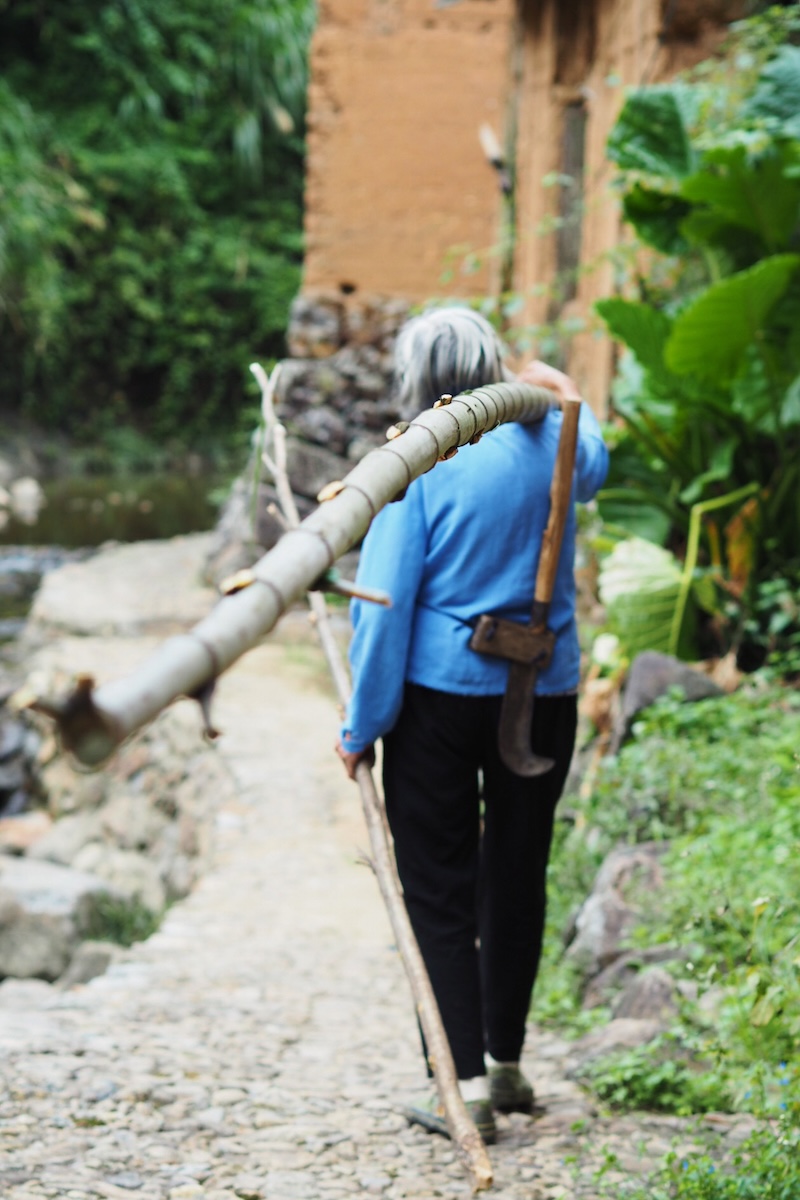
An old man living in Songyang. small grid
Wang Jun is good at learning and reflecting.
One day in August 2013, Professor Luo Luoyin, an expert on ancient architecture at Tsinghua University, met Wang Jun for the first time in Songyang. Wang Jun introduced how he used the self-taught "Venice Charter" ("International Charter for the Protection of Cultural Relics, Buildings and Historical Locations") to guide the renovation and renovation of old streets.
Luo Luo Yin recalled, "He has a very good understanding of the international principles for protecting cultural relics, buildings and historical locations, even better than many people in the industry." Luo Yin gave an example, taking the red brick walls and cement surfaces in the old street as an example. According to ordinary people, It seems that the traditional thinking should be to repair the old buildings as before and completely restore the ancient buildings, but Wang Jun proposed that these architectural information integrated with the traces of contemporary people's use are also a kind of history. "This is to grasp the key point. The protection of historical buildings is not a pure restoration, but the protection of historical information as the basic principle." Luo Yin said.
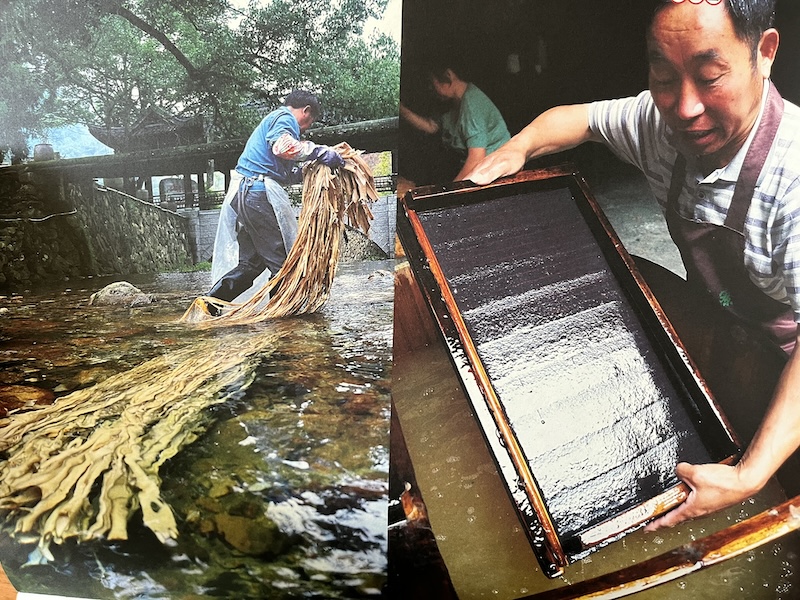
Handmade paper photo by Liu Zhenhao. Photo courtesy of the author
Protecting ancient villages is not about returning to the past, but about preserving the memories of generations and rebuilding the culture of the common people. Culture does not serve tourism, but true affection. This is the real nostalgia.
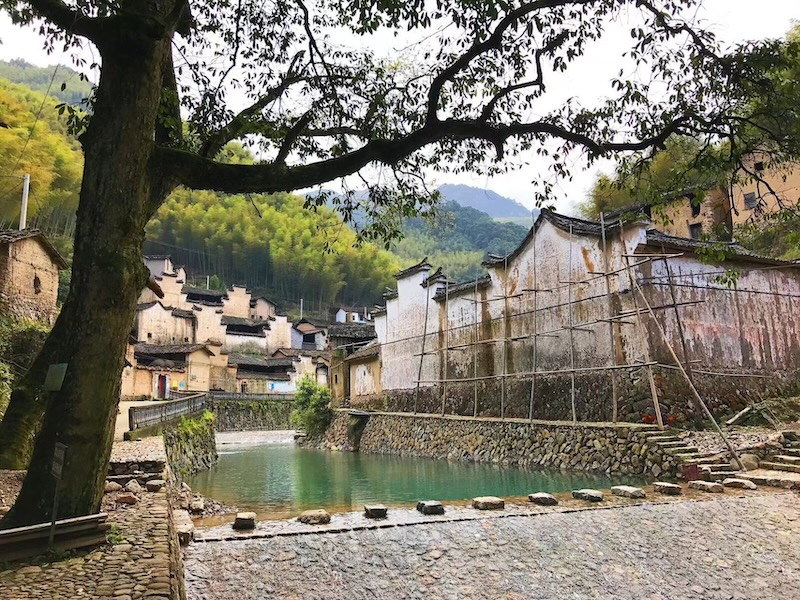
Ancient village in Songyang County. grid chart
County-wide rural development
Wang Jun was engaged in rural construction throughout Songyang County, which neither Mr. Liang Shuming nor Mr. Yan Yangchu had accomplished. Villages in Songyang County have restored traditional customs and sacrificial culture. Organic agriculture has blossomed in many places. Cooperatives have quietly emerged. Many designers have participated in the design of the village's public spaces. The ancestral hall has been fully restored. The plan to save old houses has been a success. Village bookstores have also come. Go to the mountains. Ancient village tourism and B&Bs have brought local economic benefits. The most important thing is that he planted the confidence and consciousness of cultural protection into the hearts of the people like seeds.

Songyang Chenjiapu Bookstore
“The most fundamental thing about rural revitalization is the change of people’s hearts,” Wang Jun often says. His work first moved the team, and finally the people of Songyang.
The change of people's hearts is not just empty words and slogans. What the people see is what they believe. The plan to save old houses is not as simple as saving a few old houses. It requires a lot of mobilization, coordination, and persuasion. So what is the purpose of saving the old house? The clan life in China can be explained according to the general meaning of Bangu Baihu: " Zong means respect, it is the ancestor's master, and it is respected by the clan members... Clan means together, it means gathering, which means that love and affection flow together... My dear, there is a way to mourn the death of others...that is called clan. "Chinese culture is a culture of "emotional essence". The aboriginal people live next to each other in the ancient village, and the tribesmen love each other, so the culture will not disappear. Repairing the old houses is of great significance. Behind it is the culture and people's hearts.
Hearts are given out, not taken away.
Only when Wang Jun showed his sincerity did the people feel truly moved.
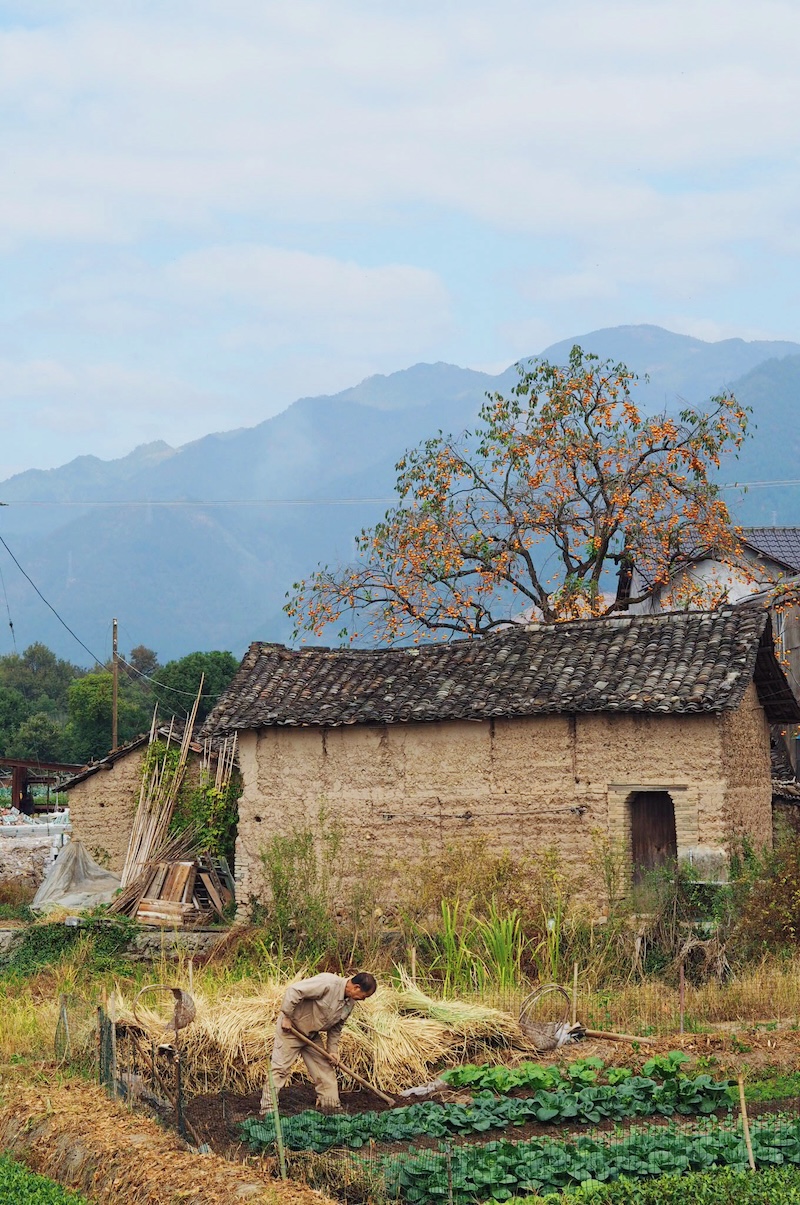
Ancient village in Songyang County. small grid
He doesn't change a word
Han Sheng worked in Songyang for three years and published "Songyang Family", of which I was the main author. In a report, I pointed out that Han Sheng is not here to praise virtues, but to rectify its origins. He nodded in agreement. And indeed supported.
I quietly sneaked into a county-wide village chief working meeting he chaired and learned about the county’s tea industry, which had excessive chemical fertilizers and pesticides and urgently needed rectification. I made it clear in the book that he must have been unhappy, but I didn't change a word of it.
I made friends with some bosses in the old street, and even the head-shaving master became my eyes and ears, and I learned what the people really thought of him. Once, a resident of an old street posted an anti-demolition slogan on their door, which was very irritating. I conducted open and covert inspections, and the people said that the family was being ignored, but Wang Jun still patiently mediated, did not tear down the slogans, and did not use force...
In this way, I confirmed little by little that he was a good secretary.
When the book was finally written, he organized experts to attend a review meeting, and we corrected some hard mistakes. However, he did not change a single word of some of the criticisms we wrote and only discussed them with me. There was a paragraph that I wrote in which he got angry and criticized his subordinates. He was afraid that it would be detrimental to his subordinates and wanted to remove it. I only changed this one thing.
The book "Songyang Heirloom" can be well received. It is inseparable from Secretary Wang Jun's openness and honesty. Han Sheng faced the problem head-on and wrote a true book.
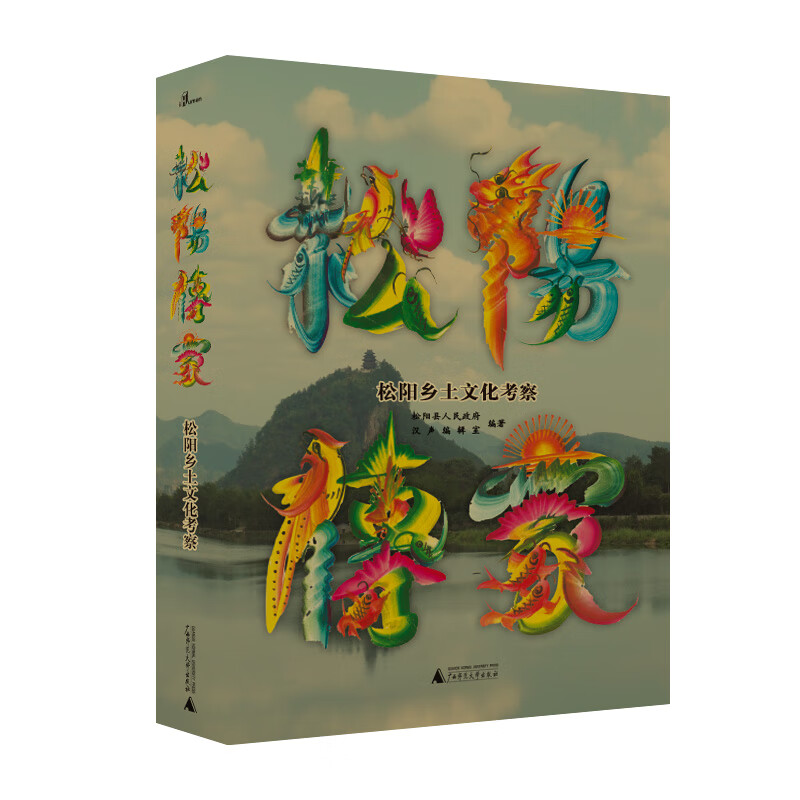
"Songyang Heirloom"
selfless person
He has the common people in his heart, so he can be selfless and fearless, and do practical things boldly.
"When a person does not work hard for his own selfishness, he will gain endless strength; when a person serves the masses wholeheartedly, he will be invincible." Wang Jun said so and did the same thing.
His confidant Zhang Bei told me that Wang Jun keeps a diary and when he wakes up every morning, he checks whether he has any selfish thoughts.
After he was promoted to deputy director of the Zhejiang Department of Culture, he became the commander-in-chief of Zhejiang's aid to Sichuan. He worked in 68 counties across the country, working day and night, regardless of his own safety.
I was eventually diagnosed with lymphoma, which may have something to do with the hard work at work.
I am quite worried that the official system will portray him as a Jiao Yulu-style cadre, which will underestimate Wang Jun. His ambition is cultural revitalization, and his wisdom is folk independence.
It is a pity that the healthy eagle broke its wings in mid-air, and the future rural construction lost its handsome talent.
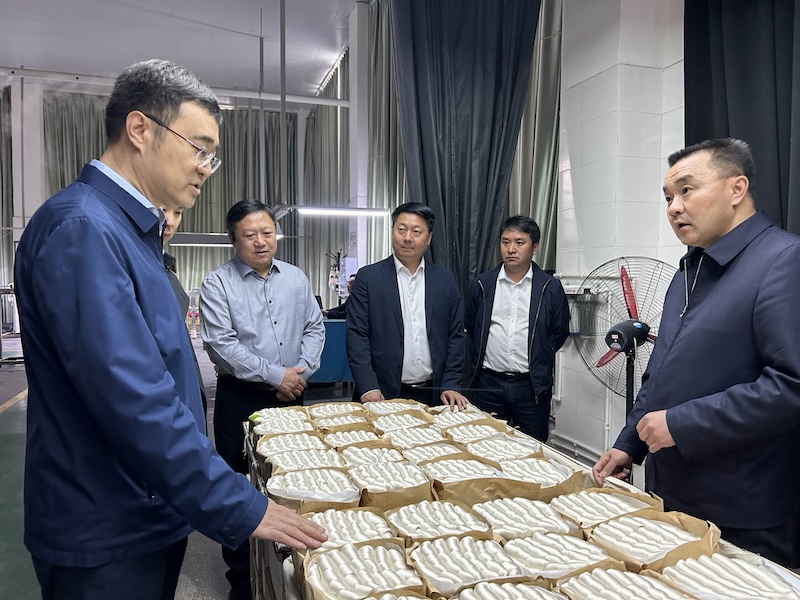
Wang Jun at work. Photo courtesy of the author
I deeply feel sorry for Wang Jun. He is a person who can open up situations, he is a person who knows the independence of the people, and he is a person who is dedicated to the people. He is almost the same age as me and is a leader of our generation.
He is one of the few idealists visible in the system, a hard-working and promising person.
I cannot allow a true cultural hero to be dishonored! Cry Wang Jun! Weeping for the sorrow of the cadres.
At three o'clock in the morning on May 27, 2024, Diaoyuan Ancient Village in Ji'an, Jiangxi.
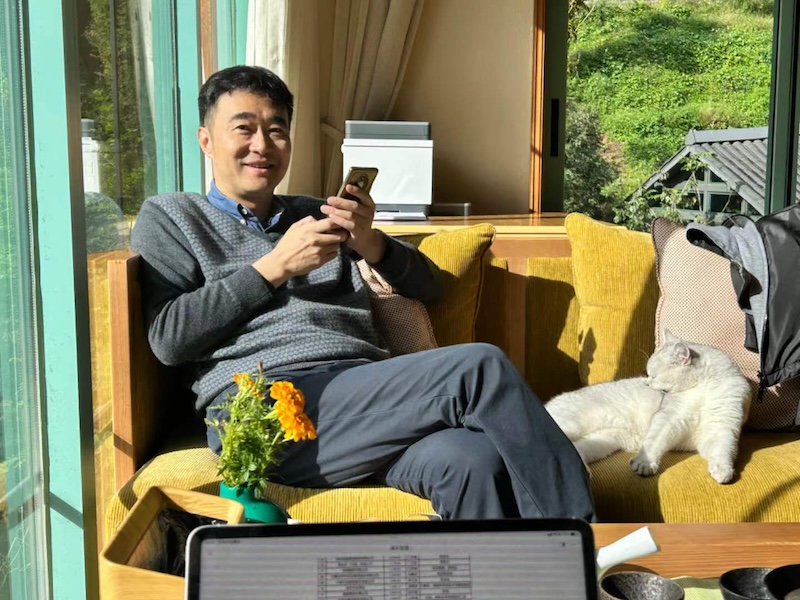
Photo courtesy of Wang Jun Author
The author was a former investigative reporter for Southern Weekend. While working at Hansheng, he participated in the editing of "Eight Water Immortals", "Hairy Crabs", "Suzhou Edition of the Kangxi and Qianlong Dynasties", "Songyang Heirlooms" and participated in the construction of the Cicheng Folk Art Museum Group.